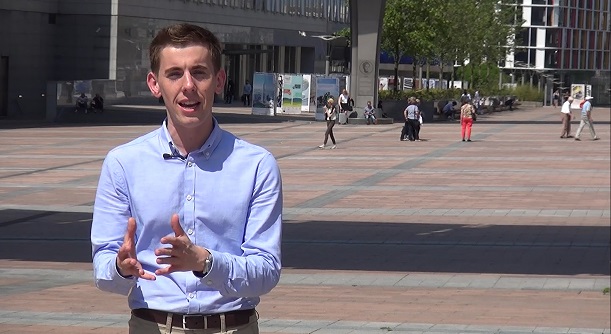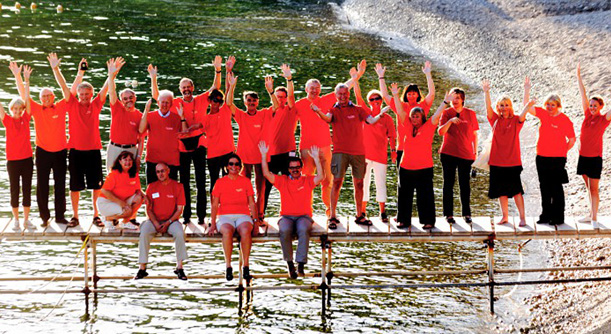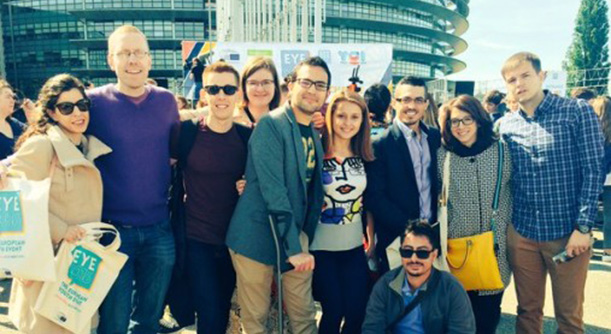On Friday 20th May 2016, youth leaders from the EPF and European Multiple Sclerosis Platform (EMSP) co-hosted a workshop at the European Youth Event (EYE) in Strasbourg.
The main objectives of the workshop were to raise awareness about the importance of employment for young people with chronic conditions and to promote workplace adjustments.
Simon Duncan, a representative from the Boingboing Community Interest Company based in the UK, shares his thoughts and perspectives on the session and how he has overcome stigma as a wheelchair user when applying for jobs…
Why did you attend EYE 2016?
I was interested in seeing how people from different cultural backgrounds approach issues, such as bullying and youth unemployment. I wanted to share my knowledge with others and try to find solutions to common problems together.
Why did you register for our workshop?
Unemployment for young people with chronic conditions is a huge issue in the UK and across the world. Take a university graduate with a chronic condition and/or disability for example; it is really demoralising that they find it almost impossible to enter the workplace at a level equivalent to their education and experience because of their health.
I wanted to gauge the extent of unemployment for those with chronic conditions throughout Europe and see if, by sharing experiences, we could come up with some potential solutions at a policy level to make the hiring process fairer and more accessible.
Have you experienced stigma when attending a job interview and/or in the workplace? How did you overcome this?
Yes, I have experienced stigma on different occasions during the hiring process. There was one interview in particular where I was clearly rushed on a test and my verbal answers were overlooked, which impacted on my overall confidence and performance. When I requested feedback, the HR representative was highly dismissive and disrespectful.
I overcome experiences like this in different ways. Firstly, I tend to find work mainly through referrals and connections. If people already know me and my skills, then they are more likely to hire me. Secondly, I do not work a standard 9am-5pm job. This enables me to circumvent the common issues that come with having a disability because I can choose my own hours, such as attending medical appointments.
Lastly, when I consider potential employers, I look to see if they are an equal opportunities employer or a member of an employment scheme, such as Two Ticks (when employers in Great Britain agree to take action regarding the employment, retention, training and career development of disabled employees).
Once I get into a role, I work as hard as I can to show that hiring me was a good decision and any stigma, whether covert or overt, was unwarranted.
What recommendations would you make to employers and decision-makers to improve the situation?
I would like improved transparency within the interview process. It should be overseen by a senior member of staff that has no vested interest in who is hired. They could write a report that details why one person was recruited over the other and make this freely available to all the candidates.
Changing the perception of young people with chronic conditions and/or disabilities is vital. Instead of viewing this as a weakness or potential cost to the company, employers should consider it as diversifying the work force and having staff who are highly adaptable and resilient; a result of living with a chronic condition and/or disability.
I would also like further clarity on the equal opportunities policy from different employers to find out if it is just a hollow gesture or if they truly deliver on their supposed ideals.
To download the full workshop report, please click here.
Contact person: Valentina Strammiello, Programme Officer, valentina.strammiello@eu-patient.eu


